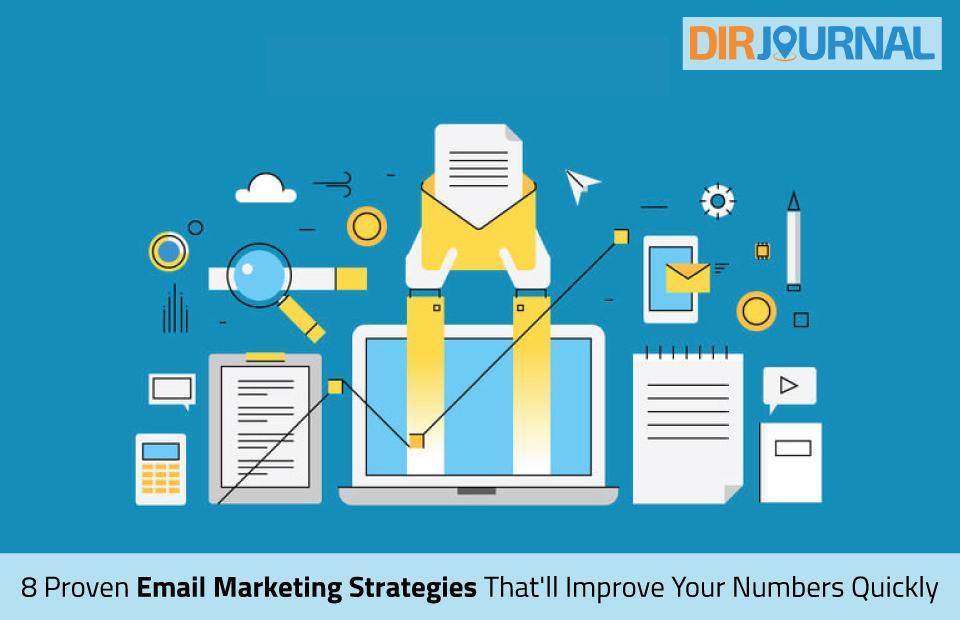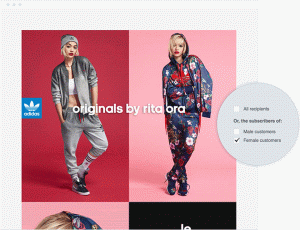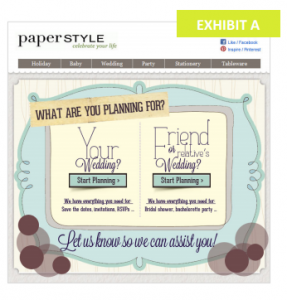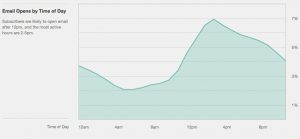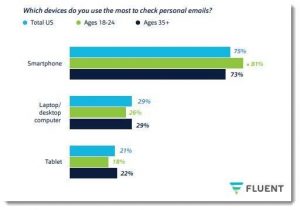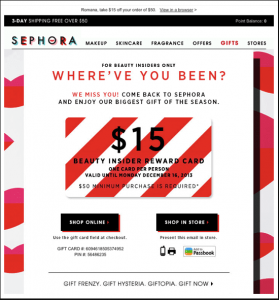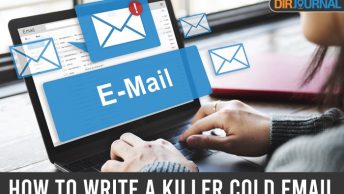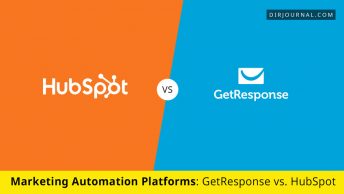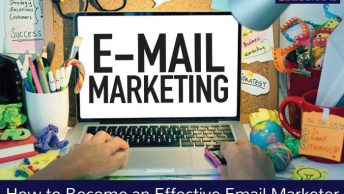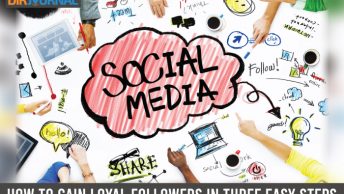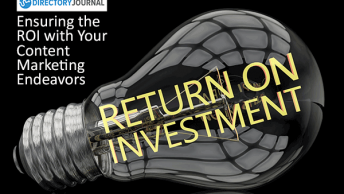Email marketing turns your client’s inbox into your promotional platform and can help you create long-term value for your brand. Marketers agree that despite the explosion of social media sites, email marketing remains one of the best ways to build your business. One of the primary reasons for this is that it can be personalized and delivered to the customer’s inbox and does not depend on them seeing the ad elsewhere on the internet.
If used well, email marketing strategies can help boost engagement and tackle customer retention and cart abandonment problems. In this guide, we will look at some of these strategies and how you can implement them for amazing results.
Let’s start!
8 Effective Email Marketing Strategies
A strong email list can be a great way to drive sales, engage with your customer base, and showcase the story behind your brand. From expanding your audience base to announcing new launches to retaining your existing customers, email marketing has been proven to help businesses grow.
A few key email marketing strategies can improve your click and open rate and expand your customer base. Here are eight you can implement right now.
1. Segment your email list
Your customers want different things and are at different stages in their buying process. For example, a consumer who has just abandoned their cart on your site does not want to see your email teaser about a new product launch. Instead, your email strategy should encourage them to complete their purchase.
Similarly, other preferences and demographics such as gender, location, and buying patterns can help you match the customer with the right message. According to a study, brands that use segmentation report an incredible increase of 760% in their revenue, highlighting the need for a more targeted approach.
Source: Campaign Monitor
Take Adidas, for example (image above). The sportswear brand uses gender to send appropriate targeted emails about its collections.
2. Personalization
If your email content is not relevant to the recipient, it is likely it will be deleted quickly – if they open it at all.
Email personalization goes beyond using the customer’s name in the greeting line and sending appropriate product recommendations based on demographics (though those things matter, too!) The rule here is to test, test, and then test again to see which methods are most successful. To compare success, track email in gmail to measure your open and click-through rates. Some ways to personalize your email are:
- Subscriber’s browsing behavior
- Position in a company
- Location and Time
- Automated behavior triggered emails
- Send emails from a person in your business, not from your brand
- Use anniversaries and birthdays to send special emails
A case study of the wedding site Paper Style shows the way email marketing can go beyond a one-sided flurry of emails. The company understood that not all of its customers were on its list for the same reason. They started with a simple question: “ What are you planning for?” The question had two possible answers: your own wedding, or a friend or relative’s wedding.
Source: Whereoware
After the customer decided, the company sent five follow-up emails that followed separate timelines to personalize its services. The study estimates a 330% increase in revenue per mailing, with click-through rates jumping 161%!
3. Verify Email Addresses
You might have the best content and a brilliant email marketing strategy, but if your email list is inaccurate, then it will all be for nothing. In addition to this, undelivered and bounced emails dent your reputation, harm your deliverability score, and cost you money. You must ensure your marketing emails are reaching their intended destination.
Email validation services are your best bet for cleaning up your email list. There are two main ways to use their services. One option is to use the bulk validation option that sheds incorrect or invalid emails from your existing list and leaves you with an actionable email list. The other option is to use real-time validation, which uses an application programming interface (API) to check your email addresses’ validity in real-time.
Don’t forget to authenticate your email as well. Use DKIM generator to set up your domain key.
4. Craft Subject Lines Mindfully
The subject line is the first thing the customer will see and is the main deciding factor in whether or not they open the email. An interesting subject line that creates a little mystery can swing the decision in your favor.
Avoid long subject lines – up to 60 characters is ideal. Otherwise, the subject line will be cut off halfway through and take away from the sentence’s meaning. DirJournal has an interesting article on 5 rules of writing email marketing subject lines. You should definitely check out the article and understand the basics of creating a strong subject line for your emails.
5. Send at The Right Time
Did you know that the time you send an email matters? What you send will get lost in the sea of emails if you send it on a wrong day or at the wrong time.
In general, you should avoid sending email blasts on a Monday when everyone is busy catching up after the weekend. Mid-week is generally an excellent time to send emails, but this does depend somewhat on industry and context. If you are a restaurant owner, for example, you might send the email closer to the end of the week where people are looking to make weekend plans which might include eating out.
Source: Wordstream
Next, consider the time of day. Research shows that people are most likely to open your emails between 2 pm and 5 pm. Of course, if you have audience members in different geographical locations, you’ll need to take timezones into consideration.
As a starting point, use email templates for gmail to ensure you send out your emails at the right time. You can then make changes to suit your design.
6. Give Away Something for Free
Everyone loves freebies, and your customers are no different. Surprise them with giveaways. You might give them useful bonus content such as free online guides, a freemium subscription, templates, or an ebook. Whatever you choose, make sure it aligns with your business, product, and email marketing goals. These freebies serve as a gateway to your products and give your recipients a reason to eagerly await your next email.
You can also use free content as a way to improve your open and click rates and drive more traffic to your site. If you want to take this strategy a step further, why not run a sweepstake or prize draw to drive more engagement with your subscribers? The prize should be something both desirable and relevant.
7. Optimize For Mobile Devices
Our screens are getting smaller, and your customers are increasingly using their mobile devices to shop, connect, and play. In fact, about 50% of all internet traffic globally now comes from mobile devices. With smartphone usage on the rise, your email marketing strategy has to be optimized for mobile.
Source: Blue Corona
Optimization includes increasing the font size to enable readability and using a simple one-column template for ease of use. Ensure that your call to action is easily visible, positioned above the fold, and easy to tap.
Responsive web design – a design that looks good and works well regardless of screen size – is now a necessity. If your marketing emails don’t follow suit, you’ll lose customers at the first hurdle.
8. Re-engage Inactive Subscribers
As a business owner, you probably already know that it is more expensive to acquire new customers than retain your existing base. If you need to keep adding more customers to replace those that leave, you will see a poor return on your marketing investment in the long term. Therefore, focusing on retention is vital. Your email marketing strategy can be an essential part of your customer retention efforts.
You can use marketing emails to give exclusive discounts and gifts to loyal customers, providing them with an incentive to buy from your site again. You can also use surveys and polls to reach out to your inactive recipients to seek information and feedback from them. Experiment with different re-engagement formats and use online tools to monitor their impact.
Source: Smartrmail
I love this example from the beauty brand Sephora. It uses an informal, friendly tone, and also offers a generous rewards discount to inactive customers if they return and make another purchase. The email includes a clear call to action and gives the recipient the option to claim this discount either online or in-store.
In closing
A strong email marketing strategy is based on a strong understanding of your customers and on matching the messaging to fit their needs. Personalization is essential. And don’t forget to verify all the email addresses on your list to ensure validity!
As you craft your marketing email, make sure that the subject line is short and exciting, as it is the first thing your subscribers will see. In addition, pay attention to the day and time you’re sending your emails. Picking the right timing can make or break a campaign! Your marketing emails must be optimized for mobile devices. If they’re not, many of your customers simply won’t read them.
Finally, while you use email marketing to add more customers, don’t forget to also put time and effort into retaining your existing ones. Use well-crafted emails to reach out to these customers and incentivize them to come back to your brand.
If you follow these tips to supercharge your email marketing strategy, you’ll soon be watching the numbers grow!

